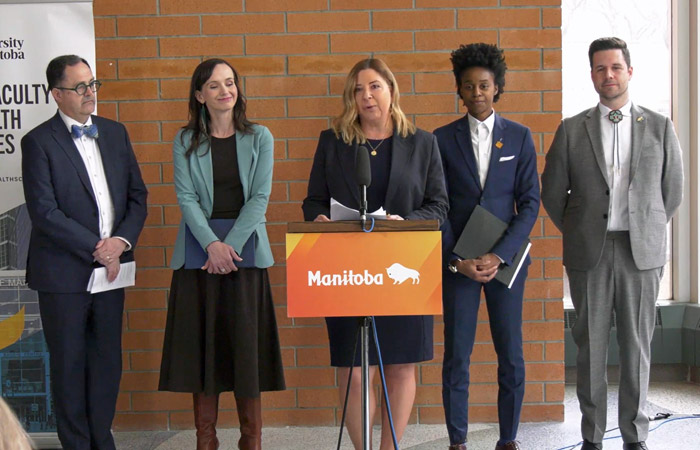The Manitoba government has announced that it is growing its physician workforce by funding more training seats for family physician graduates.
“Offering more medical residency positions, especially in rural and northern medicine, will allow us to train more physicians right here in Manitoba,” said Health, Seniors and Long-Term Care Minister Uzoma Asagwara. “The fact that Manitoba has been able to fill all available residencies reinforces that the province is steadily rebuilding its workforce. We believe more doctors are seeing and will continue to see Manitoba as the place to establish their medical careers. To all students, residents, and doctors in Manitoba – thank you for choosing to practise medicine here and for the determination, compassion and professionalism your career demands.”
Manitoba added 17 new first-year residency positions for a total of 173 and every position has been matched to a medical school graduate this year.
Across Canada, provinces are increasingly struggling to match applicants to all their available funded residency positions. Last year, the Canadian Resident Matching Service reported hundreds of residency positions went unfilled, an issue that exacerbates the family doctor shortage, noted the minister.
The ministers noted the expansion of Manitoba’s medical residency programs and its international medical graduate program puts the government on track to fulfil its commitment of adding 400 physicians to the province.
“Our government is proud to work together with the university and welcome more medical graduates to the University of Manitoba’s residency programs to help build Manitoba’s workforce from the ground up,” said Advanced Education and Training Minister Rénee Cable. “Creating more post-secondary education opportunities that prioritize our health-care system will make it easier for future doctors to receive training and provide care closer to home. We will continue to collaborate and listen to front-line workers as we work together to create a better tomorrow for all Manitobans.”
To gain clinical experience, medical school graduates must complete a post-graduate residency as part of their medical training.
“We greatly appreciate the Manitoba government’s support to increase our residency positions across disciplines and look forward to working together with the province to continue to address the physician workforce shortages across the health system,” said Dr. Peter Nickerson, vice-provost (health sciences) and dean, Rady Faculty of Health Sciences, University of Manitoba. “The provincial investment in postgraduate expansion will play a key role in enhancing health-care delivery in Manitoba.”
“This increase in residency position is an important piece to rebuilding our physician workforce and ensuring we can deliver the services Manitobans need,” said Dr. Jose Francois, provincial chief medical officer, Shared Health. “The increase in training positions in our rural and northern family training sites will ensure we are training to meet the needs of the communities they serve.”
May 1 is National Physicians’ Day, a day to recognize individuals who choose to serve as doctors.


